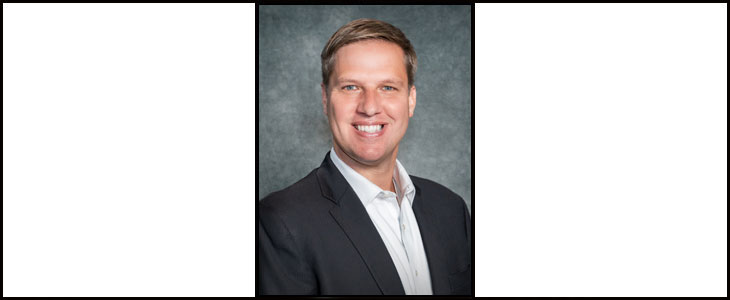
As the senior director of anti-money laundering (AML) at ACAMS, Craig Timm oversees government, law enforcement and private sector engagement in the U.S. and works to drive collaboration across the global anti-financial crime (AFC) space. Prior to joining ACAMS, Timm had more than 15 years of AFC experience across the public and private sectors. At the Department of Justice (DOJ), Timm served as a deputy chief in the Asset Forfeiture and Money Laundering Section (now the Money Laundering and Asset Recovery Section) at the DOJ’s headquarters in Washington, D.C. In that role, he led a team of prosecutors responsible for enforcing criminal violations of the Bank Secrecy Act, U.S. economic sanctions and money laundering laws committed by financial institutions (FIs) and their employees. Timm, who began his career with the DOJ as an assistant U.S. attorney in Arizona, was the recipient of numerous awards including the Attorney General’s Crime Victim’s Restoration Award, the Assistant Attorney General’s Award for Exceptional Service and the Immigration and Customs Enforcement Director’s Meritorious Service Award.
Prior to his time at the DOJ, Timm was a financial crimes executive responsible for Strategic Initiatives at Bank of America and spent several years as the financial crimes executive for the Global Wealth and Investment Management business lines, serving as the designated AML compliance officer for Merrill Lynch and U.S. Trust. Timm has an undergraduate degree from the University of Michigan and a law degree from the Northwestern University School of Law.
ACAMS Today (AT): What constitutes a typical workday for you as senior director of AML at ACAMS?
Craig Timm (CT): There is no typical workday for me, which is part of what makes working at ACAMS so interesting. Last week, I participated in a roundtable discussion with FIs, drafted part of a best practice toolkit on AML efficiency that will come out next year, and participated in a media interview on the recent criminal charges against Binance and its CEO. The week before that I worked on a submission to a Financial Action Task Force (FATF) consultation on beneficial ownership,1 sharing the lessons learned from our recent white paper, “Beneficial Ownership: Taking the Extra Step to Data Accuracy,”2 on how to make beneficial ownership registries more accurate, and then interviewing David Fein, co-chair of United for Wildlife, about illegal wildlife trade on our LinkedIn show “ACAMS Live.”3 Other weeks I might be at an ACAMS Assembly. Those are some of my favorite weeks. There is nothing like being together in person. Whether it’s listening to the speakers or the discussions that happen outside of the formal sessions, I always leave those events knowing a lot more than I did going in and feeling energized after being around so many people who are passionate about fighting financial crime. In my in between time, I read, research and write.
AT: You are extremely active on social media. What topics do you enjoy sharing and what topics flood your direct messages (DMs) from fellow anti-financial crime (AFC) followers?
CT: Two of my passions are fighting financial crime and travel. So, when I can combine the two in a post, those are the ones I enjoy the most. It’s not just the post, I enjoy the whole process of learning about where I’ll be traveling to and trying to find an interesting story about the place that ties into financial crime. Other than the travel posts, I don’t spend too much time thinking about what to post. Usually, it’s just a feeling I get reading an article, listening to a podcast or attending an event. If I’m struck by something and find it interesting, then I’ll post. In terms of my DMs, the vast majority are messages from people asking for jobs, asking to meet or talk which is typically an indirect way of asking for a job, or from recruiters offering a job. So, I don’t spend a lot of time looking at DMs. I’d rather spend my time engaging in the comments, both on my posts and others, on the substance. One thing I try to do is always keep it positive. If someone says something negative, I might correct a factual inaccuracy but then I just move on.
AT: What is the most pressing AFC threat facing the world today?
CT: The challenge of working in this space is that there are so many pressing threats all the time. If you talk to 10 different AFC professionals you might get 10 different answers, with none of them necessarily being wrong. What I think most AFC professionals would agree on is that they aren’t spending as much of their time and resources on these threats as they should be. That is why the ongoing discussion about effectiveness, prioritization and finally getting to a truly risk-based approach is so important. Globally, as an AFC community, we are spending too much time on technical compliance with laws, regulations and expectations that don’t actually make a material impact on the threats we are facing. Changing this, however, is easier said than done. We need to define what effectiveness means, come up with ways to measure it and, perhaps most importantly, determine how to supervise for it to incentivize effective behavior. The good news is that—if we can get this right—it will have a hugely positive effect on all the threats we are facing.
AT: As a subject-matter expert in AML, what recent AML trends have you observed and what trends do you see developing in the next year?
CT: Two trends I’ve seen recently that can be connected and that I expect to continue in 2024 are the explosion of cyber-enabled fraud and criminal use of new technology. Cyber-enabled fraud is one of the largest and fastest-growing generators of illicit proceeds across the world. Ranging from business email compromise to romance investment scams like pig butchering, cyber-enabled fraud generates hundreds of billions of dollars annually. These fraudsters are increasingly using more sophisticated social engineering techniques, leveraging information available online to target victims more effectively. Criminal use of new technology, such as artificial intelligence (AI) or large language models will help these fraudsters further improve their targeting capabilities. But criminal use of new technology goes far beyond fraud. Today, criminal groups can access malicious versions of large language models through the dark web, create deepfakes of voices and images, and use AI-powered ransomware. To combat this, AFC professionals are going to have to upskill ourselves so that we understand this technology, continue to develop and utilize technology to counter the criminals, and leverage public-private partnerships to share information about the latest threats and how we can best work together to detect, deter and mitigate these threats.
To submit topic ideas or comments, email editor@acams.org.
Interviewed by: ACAMS Today editorial, ACAMS, USA
- “Submission to the Financial Action Task Force Consultation on the Draft Amendments to FATF Guidance on Beneficial Ownership (R.25),” ACAMS.org, December 6, 2023, https://www.acams.org/en/media/document/36694
- “Beneficial Ownership: Taking the Extra Step to Data Accuracy,” ACAMS.org, October 2023, https://www.acams.org/en/media/document/36425
- “ACAMS Live: Combatting Money Laundering Linked to Illegal Wildlife Trade,” LinkedIn, November 30, 2023, https://www.linkedin.com/events/7128715161695064064/comments/










